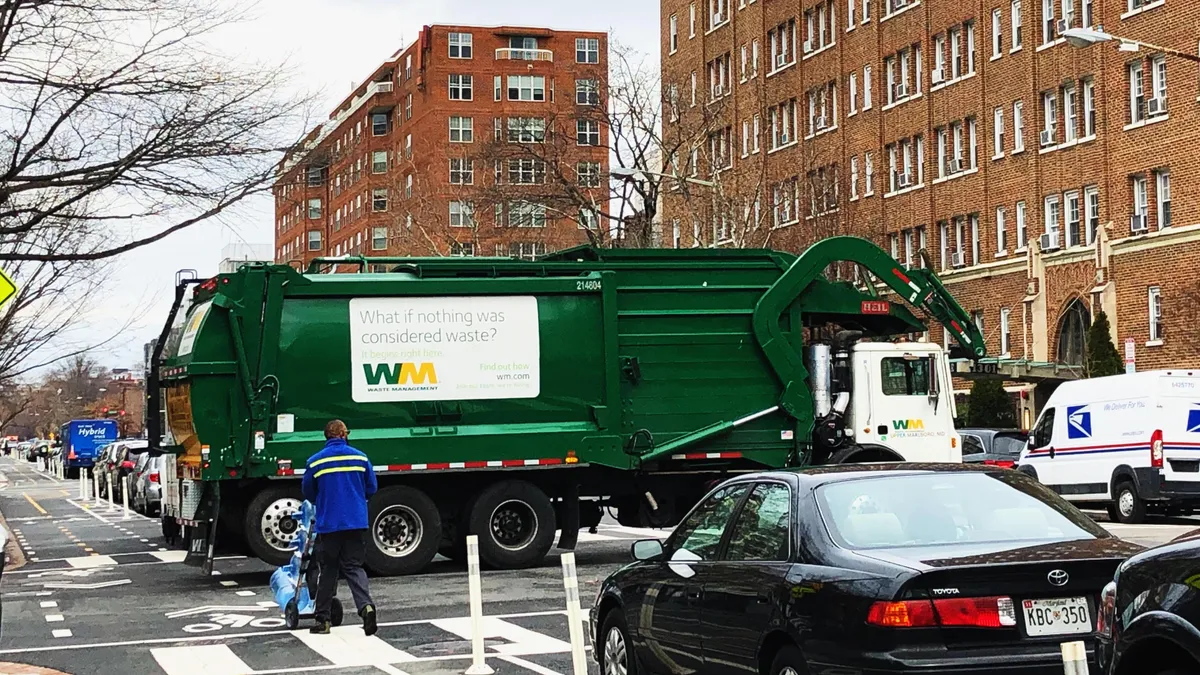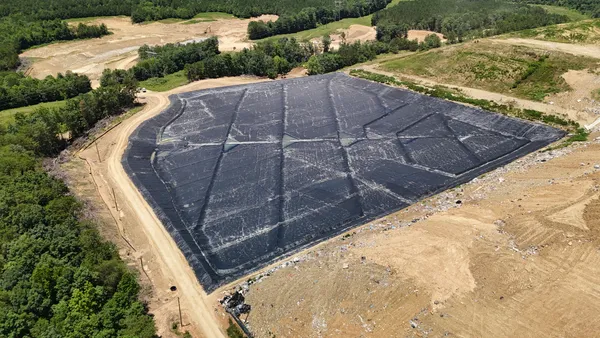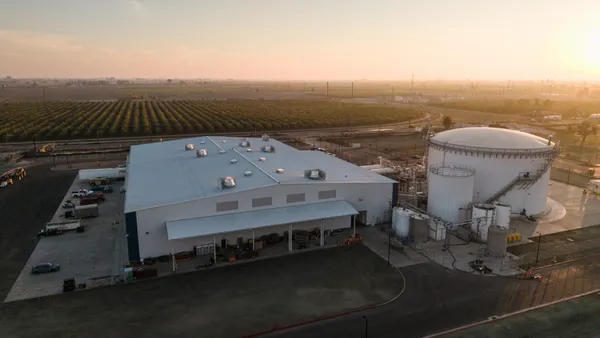Q3 Earnings
| Revenue | $3.861B |
| Year-Over-Year Change | 2.67%▼ |
| Net Income | $390M |
Waste Management struck an optimistic tone in its third quarter earnings call about future potential from the recently closed acquisition of Advanced Disposal Services, along with the pandemic's economic outlook. Better than anticipated third quarter results were supported by incremental recovery of pandemic-affected business and ongoing cost savings.
"It's coming back slowly, but the beauty of this industry is that we represent all sectors of the economy and many of those sectors are deemed essential and have been there since March. And those that are not essential are recovering reasonably quickly, some less than others, but we feel confident that as we showed in our volume numbers that 2021 will be the eventual emergence of all of these businesses," said CEO Jim Fish in this morning's earnings call.
COVID economy
- Waste Management reported an estimated 70% of commercial volumes affected by service reductions or suspensions have since picked up, with net new business and service increases trending positively. Overtime expenses for commercial and industrial service remain down by 21%.
- External landfill volumes were down 8% for the quarter, year-over-year, with C&D down 19% (in part due to comparison with high wildfire volumes in 2019) and special waste was down 12%. Landfill volumes were only down 4% for September, with levels staying steady through October.
- Residential volumes have stabilized, but remain single-digit percentages higher than normal levels. The company continues to focus on reworking municipal contracts based on this change, move toward different pricing indexes and in some cases find ways to streamline certain services to offset municipal budget pressures.
In looking at the economic recovery trends, Fish said the effects were more targeted than some others might suggest. As expected, sectors such as hospitality, sports, entertainment and education are among the most affected in certain areas.
“The impact of COVID has not been urban versus rural, what it’s really been is almost state by state and province by province," he said, explaining the states that reopened the earliest – Texas, Georgia, Florida, Arizona – have seen some of the most notable economic recoveries. Those that didn't – Pennsylvania, Michigan, New York and some Canadian provinces – are slower to bounce back.
Speaking about how the company's headquarters state of Texas did not implement notable shutdown measures during a spike in the summer, Fish anticipated this could be the case for others as the pandemic's toll appears to be rising once again. Asked whether Waste Management would extend similar relief offers to small business customers if shutdowns become more widespread, executives said they do not plan to give another free month of service or price deferrals.
The commentary around volumes sequentially returning, and possibly evening out near term, generally follow reports from other company earnings reports so far this season. Waste Management also shares the belief that some cost savings influenced by the pandemic are expected to remain permanent, and reports so far employee turnover is low.
ESG
- Following its new report, Waste Management said future sustainability plans will be factored into existing capital budgets (similar to comments by Waste Connections last week) and the Advanced assets appear in line with its update schedule. COO John Morris reiterated support for focusing on compressed natural gas vehicles, calling electric "still a developing technology."
- Recycling revenues were $290 million for the quarter, up $45 million year-over-year, due to higher commodity prices driven in part by supply chain disruptions at the start of the pandemic. Following recent MRF technology overhauls in Chicago and Salt Lake City, similar work is also planned in Raleigh, North Carolina.
- Asked about a Biden win, beyond tax changes, the company noted state outcomes are also important while suggesting it can be adaptable. "As it relates to the federal elections tomorrow, we've said that regulation is actually in a strange way a good thing for [Waste Management] because we hold ourselves to a very high regulatory standard, environmental standard, and so any additional regulation actually tends to work in our favor," said Fish. "So to the extent that that comes out of tomorrow's election that could be a good thing for us."
Looking ahead
- Waste Management's accelerated focus on digitizing its customer service operations continues, with reports that sales coming through its e-commerce platform are now the fastest growing category. Fish cited customer set-up, routing and dispatch, service confirmation and billing inquiries as areas that will be streamlined, describing it as a differentiator from competitors.
- The company paid out $230 million in dividends for the quarter, with plans for any stock repurchasing on pause. CFO Devina Rankin said the practice could resume in 2021, with strategic acquisitions and free cash flow generation still top priorities.
- Third quarter results for Advanced Disposal were not released, but Rankin estimated the remaining legacy assets could generate $225 million in revenue for the fourth quarter. The final proceeds from divesting required assets to GFL Environmental were $856.4 million.
- A more detailed financial outlook and integration update will be released with fourth quarter earnings, but plans for more than $100 million in synergies over the course of a year or more are said to be on track. “Even though we’re in a COVID environment, even though the divestitures were higher, we’re still very confident in our synergy number as we roll into Q4 and into 2021," said Morris.















